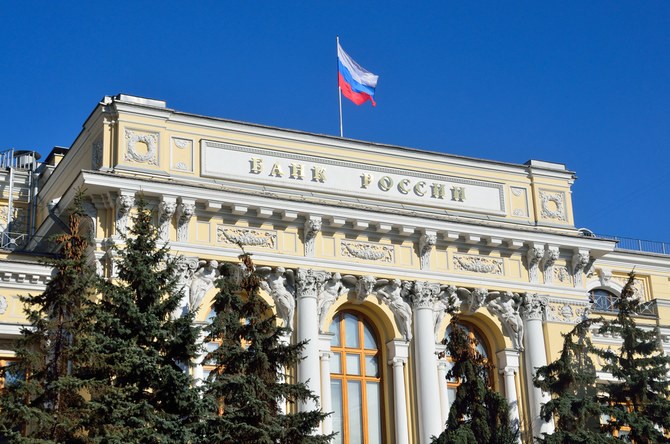US, Canada ban transactions with Russian central bank
The US is taking immediate action on Monday to prohibit American dollar transactions with the Russian central bank and fully block the Russian direct investment fund.
-

The US and Canada are banning transactions with the Russian central bank.
The United States and Canada on Monday banned all transactions with Russia's central bank in an unprecedented package of sanctions aimed at the country.
The moves taken by Europe will make it hard for the Russian central bank to use its hard currency reserves to buy rubles, the value of which collapsed against the dollar and euro on the Moscow Stock Exchange.
Transactions to support the ruble, "will no longer be possible and fortress Russia will be exposed," a senior US administration official told reporters.
The ban is meant "to ensure that Russia's invasion of Ukraine will be a strategic failure," said Canadian Finance Minister Chrystia Freeland.
"Canada is firmly on the side of the heroic resistance of the people of Ukraine and we will continue to take further action to ensure President Putin does not succeed," she said in a statement.
Read more: How do Western sanctions on Russia impact the EU economy?
The package of coordinated sanctions will create a "vicious feedback loop," and Moscow "will be forced to deplete their domestic rainy day fund far more quickly, experience a weakening of their currency making funding their war of choice much more expensive," said the US official.
"Inflation is very likely to spike. Purchasing power is likely to plummet. Investment is likely to plummet," the official said.
"Our objective is to make sure that the Russian economy goes backward if President (Vladimir) Putin decided to continue to go forward with an invasion of Ukraine, and we have the tools to continue to do that," the official said.
Washington also imposed sanctions on the Russian Direct Investment Fund, a state-owned institution that Moscow uses to raise funds overseas.
"This fund and its leadership are symbols of deep-seated Russian corruption and influence-peddling globally," said the official.
Switzerland adopts EU sanctions against Russia: President
Switzerland will adopt all the sanctions already imposed by the EU on Russia over its operation in Ukraine, as well as against President Vladimir Putin, Swiss President Ignazio Cassis said Monday.
"This is a big step for Switzerland," Cassis told a press conference after the neutral Alpine nation had for days hesitated over whether to join the international move to sanction Moscow after it launched the operation in Ukraine.
After the European Union, last week, slapped Russia with sanctions, Bern initially said that it would only ensure that those penalties could not be circumvented via Switzerland.
But following a government meeting Monday, Switzerland announced it would also impose sanctions.
"Switzerland will implement the sanctions in coordination with the EU," the government said in a statement, adding that these were "primarily goods and financial sanctions."
Moreover, they also included freezing the assets of persons and companies.
Finance Minister Ueli Maurer informed reporters that the holdings of those figuring on Brussels' blacklist, including Putin, Prime Minister Mikhail Mishustin, and Foreign Minister Sergey Lavrov, had been "frozen with immediate effect."
Justice Minister Karin Keller-Sutter listed five oligarchs - close to the Russian President - who had strong ties to Switzerland, who with immediate effect had been banned from entering the country.
Switzerland had come under increasing pressure to get in line with the EU and US sanctions against Russia.

 3 Min Read
3 Min Read









